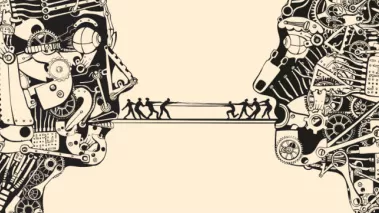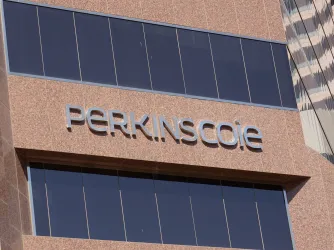Table of Contents
Free Speech: Not Just a ‘Diversion’ from Campus Protests

The protests that have taken hold of college campuses across the country this fall have drawn tremendous attention from the media and the public, both because the topic of race is the driving force behind the protests and because some protesters have been hostile to freedom of the press and have made demands that would limit freedom of speech on campus. (We’ve discussed this in some of our previous posts.)
Defending the rights of students to engage in protected expression is a central part of FIRE’s core mission. To that end, FIRE has worked tirelessly to ensure that student speech, including campus protests, remains viable on college campuses across the country. It is FIRE’s deeply held belief that society is better off when institutions of higher education are bastions of free speech, open dialogue, debate, and disagreement. Our work has included successfully suing institutions that restricted expressive activities by quarantining student expression with tiny, misleadingly labeled “free speech zones,” and supporting legislation to explicitly bar that practice. FIRE’s board and staff hold views that span the political spectrum, and we take great pains to avoid institutionally commenting on the merits of protected speech, unless the speech is directly tied to the topic of student and faculty rights or academic freedom.
So while FIRE is happy to see so many students using their freedom of expression to ensure their voices are heard, we are compelled to address aspects of the protests that are antithetical to the exercise of free speech rights by those with different views on controversial topics. Commentary from FIRE and others about the illiberal nature of some protesters’ demands has in turn drawn critics like Jelani Cobb, who argue that worries about free speech are a purposeful “diversion” from the protestors’ main message about race on campus.
FIRE makes no apologies for our zealous advocacy on behalf of our core issues—free speech, freedom of conscience, due process, etc. Indeed, that’s our job. For many observers, it has been the protesters’ actions, not their specific demands, that have raised concerns about freedom of speech and freedom of the press. The demands that Erika and Nicholas Christakis resign from their “house master” positions at Yale over an email about Halloween costumes; the forcible exclusion of student reporters from a public area at Mizzou, and a professor’s demand for "muscle" to exclude one of them; and the frankly bizarre requirement that reporters covering the protesters at Smith “participate and articulate their solidarity with black students and students of color” if they wish to cover them are three of the most prominent examples. But for those who remain unconvinced that free speech is a real issue in these protests, any doubt can be dispelled by looking at many of the demands of the students themselves.
As several commenters have noted, including UCLA law professor Eugene Volokh (quoting University of Missouri law professor Thom Lambert), protesters are likely to find themselves frustrated by asking for changes that universities may not lawfully make—for instance, the establishment of explicit racial quotas. Demands for racially exclusive positions would also violate the law if met. (As do racial tests for campus classes, which FIRE has taken on before.) And FIRE will discuss demands that, if met, would pose threats to academic freedom, freedom of conscience, and the enforcement of orthodoxy in commentary to come.
The focus of this article, though, and the demands that are of the most immediate concern to FIRE, are demands for new speech codes that would lead to increased speech policing or that would chill expression on campus. The demands highlighted below are not the sum total of all that might be problematic along these lines, but contain some of the worst offenders. Generally, if there is any way to reasonably interpret a demand in a manner that would not infringe on students’ or faculty members’ expressive rights, it won’t be highlighted. (For the reader’s ease of reference, nearly all of the protesters’ demands are available at a website, thedemands.org.)
At Dartmouth College, protesters have demanded that administrators force the conservative Dartmouth Review student newspaper to “give up the ‘Dartmouth’ part of their name if they refuse to abide by the requests to stop using the term ‘Indian’ in their paper.” Protesters have also called for administrators to “[c]reate a policy with serious consequences against hate speech/crimes (e.g. Greek house expelled for racist parties),” as well as to “[c]reate a policy banning the Indian mascot (e.g., turn away people from sporting events who are wearing Indian head shirts).” They would also like to “[b]an the use of ‘illegal aliens’, [sic] ‘illegal immigrants’, ‘wetback’, and any racially charged term on Dartmouth-sanctioned programming materials and locations.” Dartmouth cannot agree to these demands consistent with its statement that “[f]reedom of expression and dissent is protected by College regulations.”
Duke University protesters demand that “[p]rofessors, staff members, and non-academic employees” be put “in danger of losing their jobs, and non-tenure track faculty will lose tenure status if they perpetuate hate speech that threatens the safety of students of color. They will also be liable if the discriminatory attitudes behind the speech could potentially harm the academic achievements of students of color.” Yet unlike true threats, most hateful speech is protected by the First Amendment and there is, in any case, no agreed-upon definition of what constitutes “hate speech.” As for the latter part, FIRE is particularly concerned about anything that seeks to police attitudes or values. In a pluralistic society, and especially on a campus that are supposed to welcome diverse points of view, policing “attitudes” or internal states of mind threatens the right to private conscience and requires the unfair and impossible task of mind-reading.
Emory University protesters “demand that the Bias Response Team send a personalized response (that includes action steps to take for self-care and details on how to properly sanction the offender to the reporter by the University administration) within one week of [a] Bias Incident Report receipt.” For reference, reportable bias at Emory includes “unintentional” acts or behaviors, as well as “gestures.” These would now evidently be subject to “sanction.” The protesters also demand “repercussions or sanctions for racist actions performed by professors.” To that end, they demand that faculty evaluations include the questions, “Has this professor made any microaggressions towards you on account of your race, ethnicity, gender, sexual orientation, language, and/or other identity?” and “Do you think that this professor fits into the vision of Emory University being a community of care for individuals of all racial, gender, ability, and class identities?” If Emory were to fulfill these demands, it would commit itself to virtually bottomless pit of speech policing.
Emory protesters also want the anonymous social media app Yik Yak geofenced from Emory’s campus so that no student will be able to use it there, as do protesters at the University of San Diego, who demand that Yik Yak “be banned from the USD area,” because “it provides a platform for hate speech inflected with racism, sexism, homophobia, transphobia, and, especially recently, [I]slamophobia, amongst several other bigotries.” They are joined by protesters at Hamilton College, who in nearly identical words demand that Yik Yak be banned not just from their campus, but from the entire town of Clinton, New York.
Johns Hopkins University protesters demand “impactful repercussions,” including “diversity training,” for anyone who makes “Black students uncomfortable or unsafe for racial reasons.”
Similarly, protesters at Georgia’s Kennesaw State University demand the “adoption of strong repercussions and sanctions immediately added to policy for offenders of racist actions and racial bias on campus.” Once again, this not only includes speech policing but a kind of mind reading and awareness of someone's internal psychological state. How precisely someone could prove that they are not, in their heart of hearts, biased starts to look more like the problem of how to prove oneself innocent, or, to use a historical allusion, how to prove oneself “not a witch.” If such a policy were enacted, it would be challenged in court and declared unconstitutional.
At Missouri State University, protesters demand that administrators announce a “commitment to differentiating ‘hate speech’ from ‘freedom of speech.’” Again, such a “differentiation” is impossible to agree upon, because so-called “hate speech” has no legal meaning in the United States. In any case, it would be unconstitutional for Missouri State to make that distinction in any way that carries disciplinary force.
Similarly, protesters from the University of Wyoming demand that “the student code of conduct be revised to hold students accountable to hate crimes, hate speech, and sexual assault and a detailed reporting structure be developed for students to report such incidents.” While hate crimes and sexual assault are criminal acts already prohibited by both law and university policy, attempts to punish “hate speech” would be no more lawful in Wyoming than they are in Missouri or anywhere else in the United States.
Student protesters at Simmons College in Massachusetts “would like to see repercussions for racist actions performed by professors and administrators or staff.” This does not appear to be confined to unlawful racial discrimination, though, as the protesters specify that “[o]ur micro and macro-aggressions should be taken seriously and met with the highest level of urgency and care.” As FIRE’s Greg Lukianoff has written, the policing of microaggressions, given that they are by definition often unconscious, subtle, and sometimes only exist in the eye of the beholder, would in reality lead to something reminiscent of a dystopian novel. While studying microaggressions may be an interesting academic endeavor, trying to police them would be disastrous for free speech and candor on campus.
Meanwhile, protesters at Southern Methodist University in Texas demand that “[s]tatements regarding racially insensitive conduct, including, but not limited to, theme parties and anonymous posts, need to be expanded and incorporated into the Student Code of Conduct and social event registration processes.” They further demand that SMU update its guidelines on proper party themes and demand that any student organization that fails to adhere to the guidelines “be subject to loss of social privileges and university recognition.”
Protesters at the University of California, Los Angeles would appear to have similar concerns, demanding a UCLA discrimination policy that would change the fact that “Professor Sander broke no policy, the Kanye Western party broke no policy.” The Kanye Western party was a Kanye West/Kim Kardashian-themed party at which women who dressed up as “gold diggers” from West’s famous song were thought by some to have worn blackface. Students’ objection to Professor Richard Sander, on the other hand, appears to be based on his willingness to conclude that affirmative action policies harm black students and to speak publicly to that effect. Both forms of expression would evidently be unacceptable under the protesters’ preferred regime, despite being protected by the First Amendment.
University of North Carolina at Greensboro protesters demand that there be “No Hate Groups on Campus. Ever.” They argue, “Freedom of speech should not be used as a justification for rampant hateful language or opinions that further marginalizes historically oppressed communities.” The protesters do not specify who will be in charge of determining what opinions are too hateful to be tolerated. However, they demand that “administration, students and staff (including campus police)” be held accountable for “racist statements, policies, actions and attacks” as part of “the removal of policies, groups, symbols and icons glorifying white supremacy.” Similarly, the aforementioned protestors at Hamilton College in New York also call for a ban on all “hate groups.” They, too, state that “freedom of speech should not and cannot be used for justification for rampant hateful language or opinions that further marginalizes historically oppressed communities.”
Many more of these demands could have been highlighted, and given FIRE’s experience, it seems likely that a large number of the demands that do not technically necessitate violating student rights would nevertheless end up doing so if actually implemented. Colleges and universities are, after all, notoriously cavalier about respecting the First Amendment or even their own promises of freedom of speech and conscience.
But readers should be cautioned about heaping too large a portion of blame onto the students making the demands. FIRE is very aware that students are not constitutional lawyers—a common lament around our office, especially in the frequent cases in which schools use absurdly false arguments that their actions didn’t violate a given student’s rights. Far from being lawyers, a recent survey suggested that many students are not clear on the basics of the First Amendment, let alone the philosophical underpinnings of its guarantees of free expression and freedom of conscience, and how the Supreme Court has applied those guarantees. The only cure for this is education, but evidence that either K–12 schools or colleges are managing to consistently teach students First Amendment principles is sorely lacking. Put simply, many students may not even know when their demands would violate the law—or simply exchange one form of repression for another.
But does this mean free speech concerns are a distraction? Hardly. The fact that so many students are demanding speech policing—even if it’s unintentional—is cause for enormous concern. Demands for action that would contravene freedom of speech, along with other constitutional principles, are widespread. They are not outliers. They are, if not central to protesters’ demands, an important part of many of them.
It does not have to be this way. In his last speech, the Rev. Dr. Martin Luther King, Jr., talked about the importance of free speech, of freedom of the press, and of living up to one’s promises. Talking about a court-issued injunction that was blocking a planned march and rally in Memphis, he said:
Now about injunctions. We have an injunction and we’re going into court tomorrow morning to fight this illegal, unconstitutional injunction. All we say to America is to be true to what you said on paper. If I lived in China or even Russia, or any totalitarian country, maybe I could understand some of these illegal injunctions. Maybe I could understand the denial of certain basic First Amendment privileges, because they haven’t committed themselves to that over there. But somewhere I read of the freedom of assembly. Somewhere I read of the freedom of speech. Somewhere I read of the freedom of press. Somewhere I read that the greatness of America is the right to protest for right. And so just as I say we aren’t going to let any dogs or water hoses turn us around, we aren’t going to let any injunction turn us around.
Today’s protesters, too, are shielded by the First Amendment whenever they share opinions that might offend others, when they march in protest, and, yes, when they make demands of the authorities. As author and gay rights activist Jonathan Rauch says, “Free speech is not only minorities’ best friend. In some ways it’s our only reliable friend. If we can't speak in a majority culture, if we lose our voice, it is so easy to oppress us.” Demands for justice should not, and do not need to, include demands that would compromise these rights.
FIRE stands ready to work with any student or group of students to ensure that the demands they make—on whatever subject—respect Americans’ most fundamental rights. You can contact us at fire@thefire.org.
Recent Articles
FIRE’s award-winning Newsdesk covers the free speech news you need to stay informed.

Harvard’s resistance to Trump is a model for US universities

Sixty-one media organizations and press freedom advocates contest Perkins Coie executive order — First Amendment News 466

Harvard stands firm, rejects Trump administration’s unconstitutional demands
